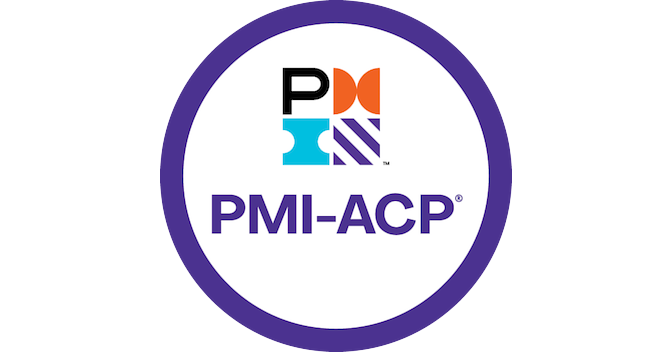PMI-ACP “Agile Certified Practitioner” Exam Preparation

Agile & Digital Innovation Training
24 Hours
Course description
The PMI-ACP is the most recognized Agile certificate in the global market, it is introduced by PMI which is the most well-known institute for the project management.
This Online interactive class provides you with the required knowledge of agile principles & strengthen your skills with agile techniques, and application methodologies.
Target audience
• Project Managers
• Project Planners
• Quality Assurance Staff
• Developers / Programmers
• Designers
• Testers
• Project Controllers
• Product Owners
• Scrum Masters
• Scrum Team Members
In addition, this course is suitable for anyone who's looking to gain knowledge of managing agile projects and understand how Agile is applied and practiced in a project environment.
Course requirements
The course has no prerequisites. So any participant can attend to gain the full knowledge. Yet, for registering in the official PMI-ACP exam afterwards, participants should earn the below professional working hours:
Exam Requirements:
All participants should have at least 2,000 hours (12 months) working experience on projects, This experience must have been earned in the last 5 years.
In addition, they should have worked for at least 1,500 hours (8 months) on Agile projects or with Agile methodologies.
Delivery Schedule
Virtual Instructor-led Workshop:
Sunday : 14-April from 6-10 PM (GMT+2)
Wednesday: 17-April from 6-10 PM (GMT+2)
Sunday: 21- April from 6-10 PM (GMT+2)
Wednesday: 24-April from 6-10 PM (GMT+2)
Sunday: 28-April from 6-10 PM (GMT+2)
Wednesday: 01- May from 6-10 PM (GMT+2)
Course Deliverables:
• 24 hours of professional training with a certified instructor
• Softcopy of the course material
• All participants will be eligible to book 1 hour exam preparation session with the class instructor before registering to the official PMI-ACP exam to help with more tips and study notes on how to pass and get officially certified.
• End of class completion certificate, stating the total number of development hours (24 hours).
Course teachers
Haitham Zaki
Haitham is a leading professional with 17 years of experience, has proved his stance in the industry of Project Management and Agile Coaching over the course of his career in several industries. Haitham has delivered hundreds of training programs to thousands of participants with exceptional feedback and very valuable outcomes. In addition, He is a project management and agile lecturer in different universities helping to introduce the new management techniques and roles to the educational community.



Haitham Zaki
Course Plan
|
Section 01 Workshop Introduction
| |
|
Section 02 Domain 1 : Agile Principles & Mindset
| |
|
Section 03 Domain 2 : Value-Driven Delivery
| |
|
Section 04 Domain 3 : Stakeholder Engagement
| |
|
Section 05 Domain 4 : Team Performance
| |
|
Section 06 Domain 5 : Adaptive Planning
| |
|
Section 07 Domain 6 : Problem Detection & Resolution
| |
|
Section 08 Domain 7 : Continuous Improvement
|